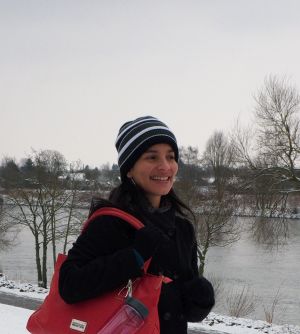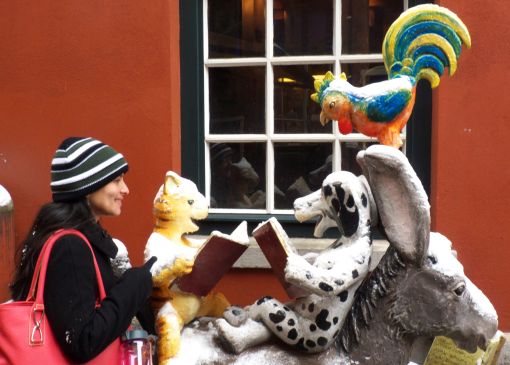30 Years of Development-Related Postgraduate Courses – Looking Back, Forward and Inward
Tania E. Romero, Panama
2014, International Studies in Aquatic Tropical Ecology (ISATEC), University of Bremen
Tania E.Romero has two primary interests. She wants to preserve Panama’s natural resources and establish the topic ecology in her home country. At the University of Bremen, the DAAD alumna studied International Studies in Aquatic Tropical Ecology (ISATEC).
Panama – Pacific and Caribbean beaches, tropical rainforest, enormous biodiversity, Tania E. Romero has felt a strong connection to this unique natural environment since childhood. “In order to protect our ecosystem from the negative effects of climate change or urbanisation of its coasts and beaches, we first have to understand it”, says the 37-year-old. The problem: This knowledge is lacking in Panama. No university there has an Institute for Ecology. The Panamanian gained the proper know-how after studying biology in another climate zone.
Protecting Mangrove Forests
The master’s programme ISATEC, for which she came to the University of Bremen, was perfect for her needs. “It dealt exclusively with tropical ecosystems, ideal for implementing in Panama.” Romero´’ area of specialty: mangrove forests and their function in the carbon cycle. “The mangroves along our coasts filter the water and protect against flooding. But they are capable of much more”, explains the DAAD alumna. “Scientists have found out that these trees absorb large amounts of carbon during photosynthesis and store it in the earth for long periods of time.”
Raising awareness about how important mangroves are for people is now crucial because more and more mangroves are being destroyed by new construction projects. This is Tania Romero’ task as a specialist for carbon measurements at the United Nations Development Programme Country Office (UNDP-Panama). “During my master’s studies, I was already involved in figuring out how to measure carbon levels in mangroves”, says Romero. Now she is working on developing national guidelines for measuring carbons pools and stock.. “We can only begin to protect these carbon reservoirs after we determine how much carbon our forests absorb.”
Romero found a suitable job after a one-year search. “I definitely wanted a job in which I could contribute to new rules and laws to protect our coasts”, she explains. She recommends that other EPOS graduates also persevere. “We have to fill positions where decisions are made.”
At the UNDP, she works closely with Panama’s Ministry of the Environment. The German ministry with the same responsibility funds the project. “I didn’t know that Germany also supported other countries in this way. That strengthened my ties to Germany even more.”
Bridge to Germany
The Panamanian is the national ambassador of the Leibniz Centre for Tropical Marine Research in Bremen. She connects her own experience with scientific policy goals. She recently initiated a workshop to promote research cooperation projects. “I’m glad when joint projects arise from initiatives such as this and contribute long term to establishing ecology in Panama.”
With this in mind, Tania Romero also hopes that more young Panamanians will come to Germany to study. “When I started, a fellow student and I had been the first candidates from Panama to apply for a DAAD scholarship in the ISATEC programme. Many more Panamanians should know about this outstanding programme.”







